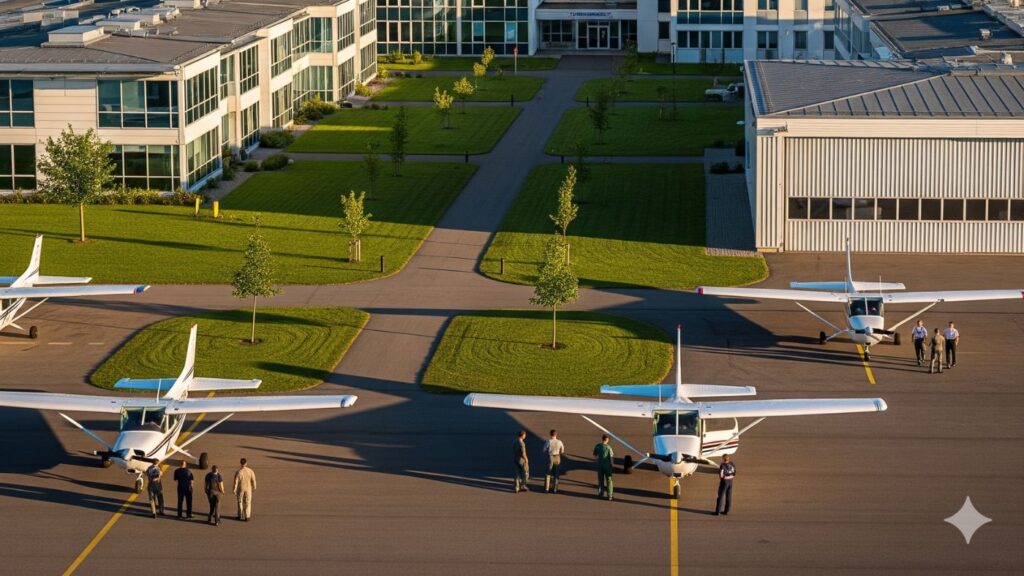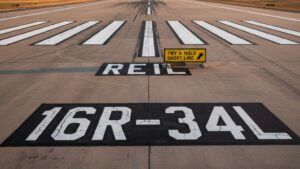Air traffic controllers have an extraordinary responsibility. They help pilots navigate crowded skies safely, keep track of complicated takeoff and landing schedules and are the unseen protectors of aviation safety. This job requires a lot of professionalism, steady nerves, clear communication and a lot of learning. If you want to work as an air traffic controller, you need to know what the job entails.
What Does the Role Involve?
Air traffic control (ATC) is the job of watching and directing planes on the ground and in the air. Controllers tell pilots about the weather, the state of the runway, the flow of traffic and how far apart planes should be so as to stay safe. Some controllers work in control towers at airports, while others work from area control centres that handle traffic on the way to its destination. To keep everyone safe, controllers must always be able to process a steady stream of information, guess what the pilot wants to do and work well with other controllers and pilots.
Important Skills and Traits
Being accurate is very important. A wrong instruction or a late call can have effects. Controllers need to speak clearly and use standard phrases that are short and to the point. Even in stressful situations, they should keep their voice calm and steady. To keep track of several planes, changing weather patterns and changing traffic patterns, you need to have very good situational awareness. Making decisions quickly, in just a few seconds, can help things run smoothly and avoid fights. Controllers also depend on teamwork a lot; they often work with people in nearby sectors or on the same shift.
How to Get into the Field in India?
The Airports Authority of India (AAI) is the main employer of air traffic controllers in India. Most of the time, candidates need to finish a science-stream education and then get specialised training. AAI gives written tests on subjects like English, maths, physics and general knowledge. The Air Traffic Services (ATS) Training School invites people who pass the tests to join. There, they take both psychological and theoretical tests.
After passing the written test, training includes simulations, live tower exercises and controlled radar environments. To move on to real-time operations, you have to show both technical skill and mental toughness. The whole process could take more than a year, from the first selection to the full certification. The training is hard because the job is very important for keeping aviation safe.
Standards and Comparisons Around the World
The career path is the same all over the world. For instance, in the US, the Federal Aviation Administration requires people to pass a lot of classroom instruction, simulation training and on-the-job training in controlled settings. Controllers must pass tests that show they can manage risks, do more than one thing at once and talk clearly. A report from the US Government Accountability Office states that people need to keep getting training to stay skilled and deal with changes in traffic patterns and automation.
Eurocontrol in Europe has high standards as well. The training is designed to meet the requirements of the European Aviation Safety Agency. Trainees practise voice procedures, scenario-based rehearsals and coordination drills for cross-border airspace. This makes sure that all controllers, no matter where they are, have to meet the same safety and performance standards around the world.
Challenges and Rewards
This job can be very challenging. Controllers have to deal with shifts that aren’t always the same, long periods of intense focus and being in charge of many lives. Managing stress and fatigue becomes an important skill. But the job still has big rewards. There is a special satisfaction in directing several flights to safety and knowing that your choices literally keep people in the air. Salaries in India are good compared to other technical jobs, and AAI offers benefits like scheduled days off, health insurance and a pension. Air traffic control professionals are well paid around the world, which shows how important their job is.
How to Prepare Ahead of Time?
Are you thinking of aiming for this role? Get going early. Practice mental maths and pay close attention to complicated instructions to improve your English communication skills and mental agility. Improve your focus and practise doing more than one thing at once. Online air traffic simulators, flight tracking apps and even puzzle-based games that make you feel like you’re in a busy place can help. Stay up to date on changes to aviation rules, procedures and technology. When it’s time to apply to AAI or another provider, you’ll be better able to handle both the academic and mental parts of the selection process.
Wrapping It Up
To be an air traffic controller, you need to know more than just how to use radios and watches. It takes discipline, clear communication, mental strength and a desire to keep growing. The path in India goes through AAI’s supervision of competitive exams, immersive training and psychological testing. Standards are still strict around the world, which keeps airspace safe at all times. The job is challenging, but it gives you a lot of personal satisfaction and a very important role in your field. With the right mix of skill, stamina and steady focus, you could also become the voice that guides the skies.










